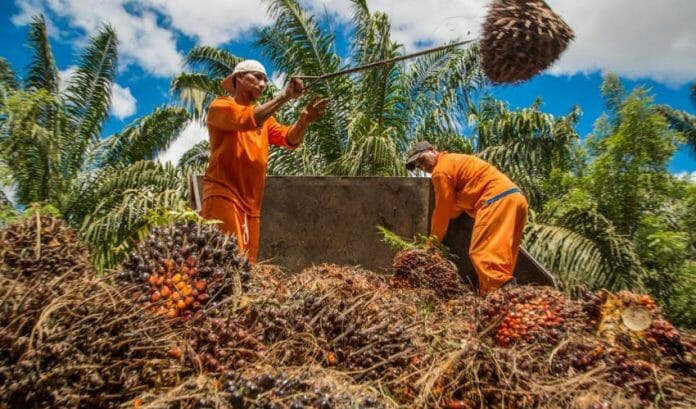The research house has maintained its call on the plantation sector in ‘NEUTRAL’ rating.
Indonesia’s ban on its palm oil (PO) exports, which took effect on 28 April, may not necessarily have the effect it desires. This may also worsen the pressure on inflation, and further encourage hoarding activities. The winners of this move are pure Malaysian palm oil players as well as those with downstream capacities in Indonesia.
Top Picks of plantation sector are, Wilmar, Kuala Lumpur Kepong (KLK), Sarawak Oil Palms (SOP), and Ta Ann (TAH).
Indonesia has decided to ban all exports of PO with effect from 28 Apr, following the shortage of cooking oils in the domestic market. President Joko Widodo said he wanted to ensure the availability of food products at home, after global food inflation levels soared to a record high. He said he would monitor and evaluate the implementation of this policy so availability of cooking oil in the domestic market becomes abundant and affordable.
Bulk cooking oil being sold higher than ceiling price. In Indonesia, the retail price of branded cooking oil averages IDR26,436/litre, up more than 40% in 2022 so far. In some provinces, prices have nearly doubled in the past month alone, according to a price monitoring page. As a result, demonstrations have taken place in several cities across Indonesia in recent days over high cooking oil prices. Although Indonesia set a cap of
IDR14,000/litre for bulk cooking oil since January, Trade Ministry data showed that it was sold at more than IDR18,000/litre in April.
Government taking a hard stance… With this move, Indonesia seems to be taking a hard stance against hoarders of cooking oil from continuing with their activities, as its Government may lift the price ceiling post
Lebaran. By banning exports of CPO for an unknown period of time, the Indonesian Government believes that exporters and distributors will have no choice but to flood the domestic market with oil. Indonesia produces
46m tonnes of PO annually, of which 27m tonnes are exported.
The research house is its latest report states that they believe the said measure would, however, have the effect of raising CPO (and other vegetable oil) prices even further, and worsen inflationary pressures. CPO exporters in Indonesia would suffer as a result, while downstream players with refining capacity would benefit, as there would be a significant shift in the demand-supply mechanics in the country, causing domestic supply to be abundant. It is expected that there is also no guarantee that there will be additional supply released to the market, as CPO refiners may also decide to hold back their refined oil stocks to benefit from the higher prices, if and when the Government lifts the ban. Refined oils can be kept for as long as 6-8 months with no impact to quality, and after packaging, can be kept for a further 12-18 months.
Reiterating their ‘NEUTRAL’ rating while advocating a trading strategy, the research house recommends to pick the winners. Vegetable oil prices will spike as a result of this news, but should Indonesia change its stance this will also reverse quickly. BUY the winners – pure planters in Malaysia (SOP, TAH) and the downstream planters in Indonesia (Kuala Lumpur Kepong, Wilmar), PP London Sumatra and Bumitama Agri on valuation
grounds.









